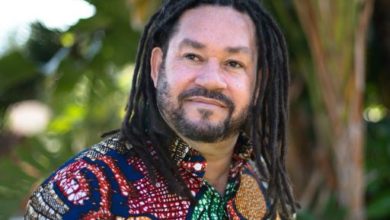Caribbean Profile Can Be Boosted Through Cultural Diplomacy
GREATER GEORGETOWN, Guyana – An ongoing programme of cultural diplomacy can be beneficial to the Caribbean once it is implemented strategically.
Such a programme should draw on the unique culture of the Caribbean which is being displayed at the 10th staging of the Caribbean Festival of Arts (CARIFESTA), now taking place in Guyana.
This view was shared by three panelists at the CARIFESTA X symposium on Cultural Diplomacy at the International Convention Centre in Guyana on 27 August. They were Dr. Prem Misir of the University of Guyana, Miss Desa Philadelphia and Ms Rima Tatevossain of the University of Southern California.
Ms Philadelphia, a former journalist and Cultural Diplomacy specialist stressed that while individual Caribbean countries had a distinctive culture, as a whole the Caribbean shared several things in common and these should be marketed on the world stage. In this regard she pointed to carnivals, festivals, music and craft as among the cultural elements that contributed to the shaping of a Caribbean identity and which should be used to sell the countries.
She pointed out that CARIFESTA should be seen as a vehicle that could be utilized to get Caribbean culture on the world stage.
“CARIFESTA provides an excellent platform for Caribbean countries to seek to maximise the benefits to be derived from culture. Individual countries in the Caribbean have distinctive brands and these contribute to the overall Caribbean brand. CARIFESTA can be used to build and boost this brand,” said Ms Philadelphia.
The panelists pointed out that countries had long used cultural diplomacy as a tool for building relationships, adding that developed countries had effectively exploited this tool. It was further pointed out that effective use of cultural diplomacy entailed effective branding of a country or region.
“It is not by accident that one sees countries spending a lot of money to promote its brand. When a country is favourably branded it helps in the overall picture of how the country is viewed,” said Ms Tatevossain.
“It is very expensive to build a brand therefore the protection of that brand is important. The Caribbean has a brand which can be easily identified through culture. Additionally cultural diplomacy can help to build and cement foreign policy and long term economic goals,” Ms Philadelphia added.
It was highlighted that cultural diplomacy was the most acceptable form of public diplomacy and should be seen as a channel utilised by countries for developing long term foreign policy towards achieving mutually beneficial goals.
“Cultural diplomacy works best when it’s very strategic. There has to be government taking part in the process and doing so strategically,” Ms Philadelphia emphasised.
The panelists informed that cultural diplomacy could be expensive for developing countries therefore wherever possible existing avenues should be exploited to reinforce a brand. In this regard it was suggested that Caribbean countries should leverage opportunities offered by carnivals in North America and Europe and utilise international personalities with Caribbean backgrounds to sell the region.
“At CARIFESTA we are obviously focusing on culture which is what gives people their richness and speak to the quality of life that people can enjoy. This is very fortunate for countries in the Region because CARIFESTA affords an ideal opportunity for the marketing of Caribbean culture,” said Ms Philadelphia.
Dr. Misir emphasised that CARIFESTA provided an opportunity for institution building which could benefit a country’s cultural industry. He added that such institutions could also serve the Caribbean as whole.
“In the Caribbean we have to develop the kind of mechanism that will link us. For instance one of the legacies of the 1972 CARIFESTA was the Burrowes School of Arts. If institutions as this can attract other Caribbean nationals it would engender us to have greater institutional linkages. Governments have a major role to play but it has to also happen through relationships with civil society and private partnerships, “said Dr. Misir, adding that one thing Guyana hoped to have as a legacy from hosting CARIFESTA X was the establishment of a school of music.
He stressed that there had to be an equal co existing of cultures in order for people to understand each other and with this understanding, appreciation of each other’s culture would follow.



